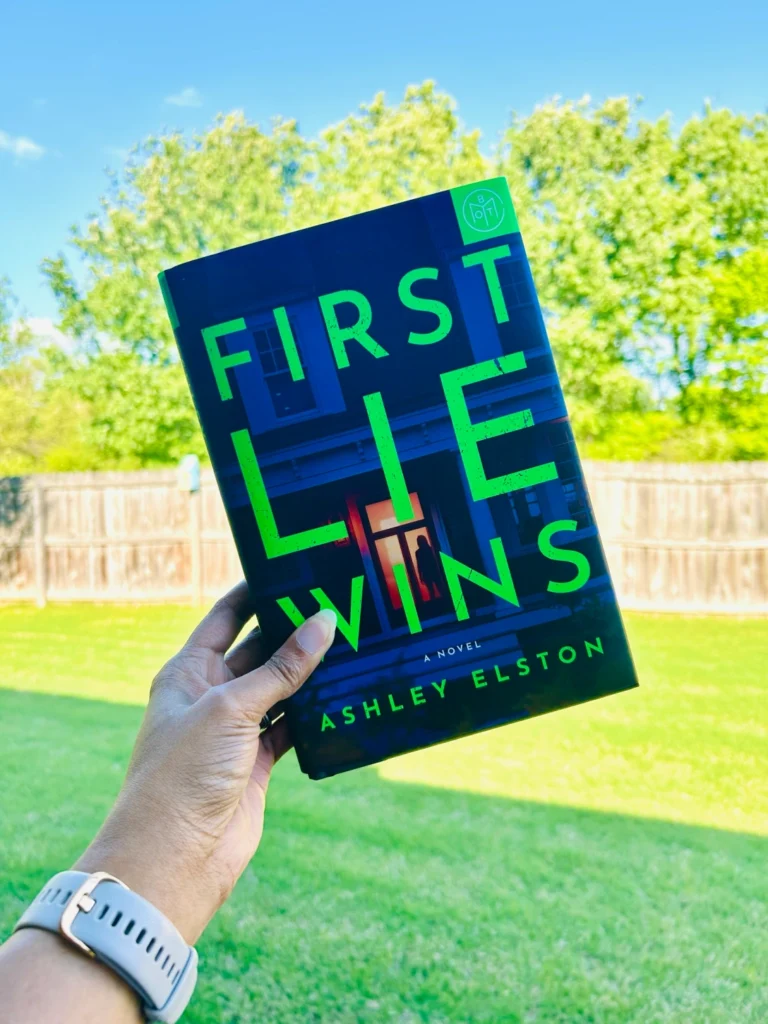In the ever-expanding realm of tabletop games, where strategy, deception, and wit intertwine, “First Lie Wins” emerges as a captivating entry that challenges players to embrace their inner trickster. This game has garnered attention for its unique mechanics and engaging gameplay, making it a staple in game nights across households. In this First Lie Wins review, we will explore the nuances of the game, from its mechanics to its overall appeal, ensuring you have a comprehensive understanding of what it has to offer.
Overview of the Game
“First Lie Wins” is designed for 4 to 10 players, making it ideal for gatherings, parties, or family game nights. The premise is simple yet intriguing: players take turns making statements—some true, others false—while their peers attempt to discern fact from fiction. This First Lie Wins review emphasizes that the game’s core lies in the art of deception, as players must craft believable lies while also honing their skills in detecting when others are pulling the wool over their eyes.
Components
The game comes with a variety of components that enhance the experience:
- Cards: Each player receives a set of cards that they can use to create statements. These cards often include prompts or categories, guiding players in forming their lies.
- Scoreboard: A visual element that tracks each player’s points and progress throughout the game.
- Timer: To maintain pace and add an element of urgency to each round, a timer is included, ensuring that players make their statements within a set timeframe.
Gameplay Mechanics
Setting Up
To begin, players gather around a table, and each person is given their set of cards. The rules are explained, and everyone gets familiarized with the objective: to deceive your opponents while also identifying the lies among the truths.
Rounds and Turns
The game is played in rounds, with each round consisting of several turns. During a turn, one player draws a card and reads the prompt aloud. The player must then come up with a statement based on the prompt, choosing whether to tell the truth or fabricate a lie. Once they’ve made their statement, the other players must discuss and decide whether they believe the statement is true or false.
Scoring
After all players have made their statements, they vote on whether they think each statement is true or a lie. Players earn points based on the following criteria:
- Successful Deception: If players believe a lie, the liar earns points.
- Truth Detectives: Players who correctly identify a lie also receive points.
The game continues for a predetermined number of rounds or until players decide to conclude the session, with the player accumulating the most points declared the winner.
Strategic Depth
What makes “First Lie Wins” particularly engaging is the strategic layer woven into its mechanics. Players must not only think on their feet to craft lies but also read the room to gauge the reactions of others. This creates a dynamic environment where social skills and intuition play a crucial role.
Crafting Lies
The art of lying in “First Lie Wins” is a fascinating dance. A well-constructed lie can sometimes be more believable than the truth, especially if it incorporates relatable details or minor truths. Players are encouraged to draw from personal experiences or common knowledge to create statements that resonate with others, making them more difficult to detect.

Reading Opponents
Players also need to hone their skills in reading body language and vocal inflections. Observing how opponents react to various statements can provide clues about the veracity of their claims. Those who can effectively combine their skills in deception and observation will find themselves rising to the top of the scoreboard.
The Social Element
At its core, “First Lie Wins” is more than just a game; it’s a social experience. The interactions that unfold during gameplay foster laughter, surprise, and sometimes even tension. The shared experience of trying to outsmart each other creates bonds among players, making it an ideal choice for parties or gatherings where social interaction is a priority.
Encouraging Creativity
The game encourages players to think creatively. The prompts on the cards can lead to hilarious and unexpected statements, adding to the entertainment value. The unpredictable nature of each round keeps players on their toes, as they never know what to expect from their opponents.
Accessibility
One of the significant advantages of “First Lie Wins” is its accessibility. The rules are straightforward, allowing new players to quickly understand and join in. This makes it suitable for a wide range of audiences, from seasoned gamers to casual players looking for a fun way to pass the time.
Expansions and Variants
As with many successful tabletop games, the potential for expansions or variants exists. While “First Lie Wins” is enjoyable as is, future expansions could introduce new themes, prompts, or gameplay mechanics, further enriching the experience and keeping the game fresh over time.
Conclusion
“First Lie Wins” offers an exciting and interactive gaming experience that combines strategy, deception, and social interaction. With its simple mechanics and engaging gameplay, it caters to both casual players and seasoned gamers alike. This First Lie Wins review highlights how the game fosters creativity, encourages critical thinking, and creates memorable moments filled with laughter and friendly competition. Whether you’re hosting a game night with friends or looking for a fun family activity, “First Lie Wins” is sure to deliver an entertaining experience that will keep players coming back for more. So, gather your group, put your storytelling skills to the test, and let the games begin!
FAQs About First Lie Wins Review
1. How many players can participate in “First Lie Wins”?
“First Lie Wins” can accommodate 4 to 10 players, making it perfect for small gatherings or larger parties.
2. What age group is the game suitable for?
The game is generally recommended for ages 12 and up. However, younger players can also enjoy it with adult supervision, especially if they grasp the mechanics of deception and strategy.
3. How long does a typical game session last?
A typical game session lasts around 30 to 60 minutes, depending on the number of players and rounds played. The quick rounds keep the gameplay dynamic and engaging.
4. Are there any expansions or additional content available?
While “First Lie Wins” is enjoyable on its own, there is potential for expansions that could introduce new themes, prompts, or gameplay mechanics. Always check with the publisher for any new releases!
5. Is prior experience with tabletop games necessary to play?
No prior experience is necessary! The rules are easy to understand, and newcomers can quickly get the hang of the gameplay.
6. Can the game be played with mixed-age groups?
Yes! “First Lie Wins” can be played with mixed-age groups, as long as players are comfortable with the concept of lying and truth-telling in a fun context.
7. What makes “First Lie Wins” different from other party games?
What sets “First Lie Wins” apart is its unique focus on deception and the strategic elements involved in crafting believable lies while trying to detect opponents’ falsehoods. The social dynamics and interactions create a lively and unpredictable atmosphere.
8. Where can I purchase “First Lie Wins”?
You can find “First Lie Wins” at major retailers, local game stores, or online platforms such as Amazon or the game publisher’s website. Check for availability and any potential deals!

